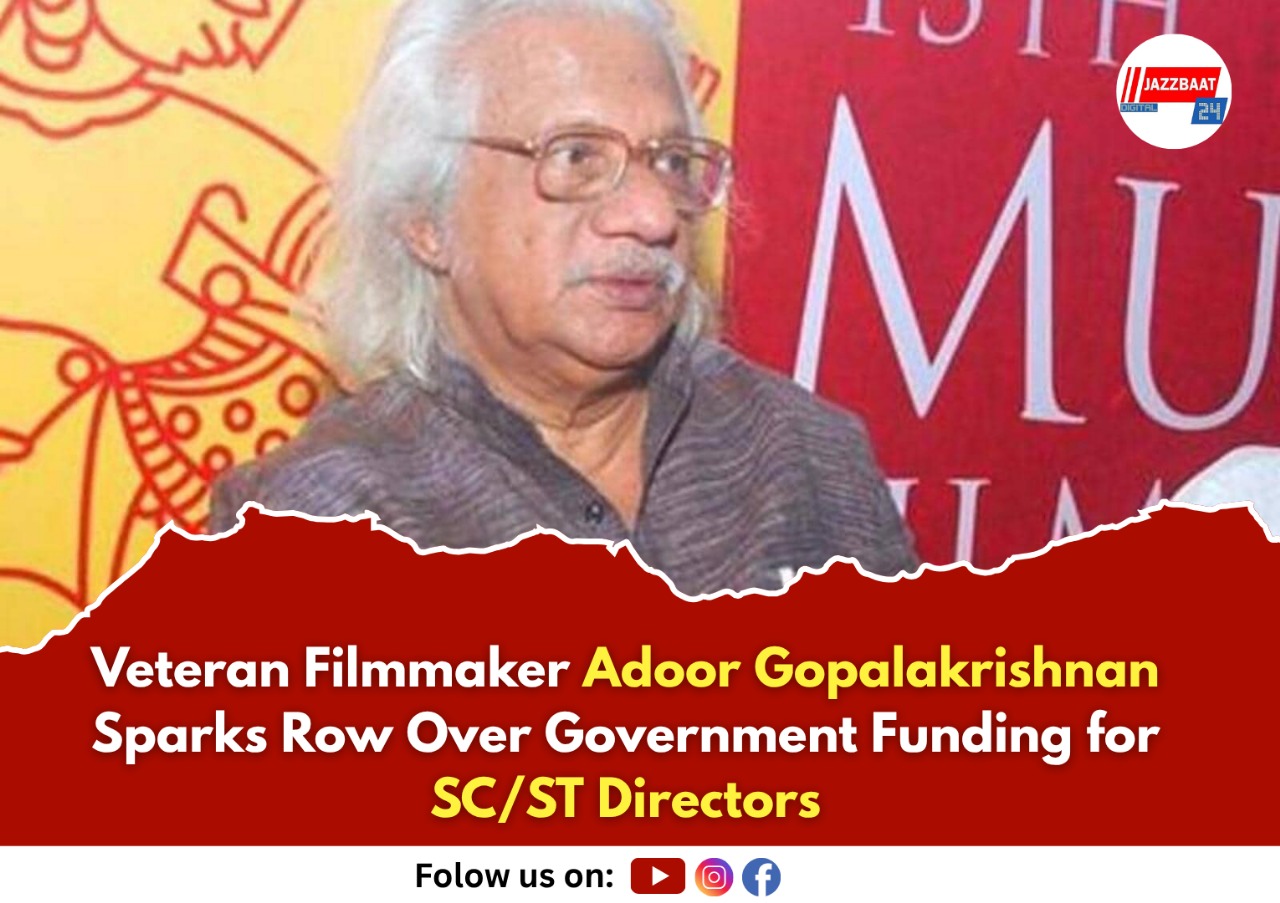
Legendary filmmaker Adoor Gopalakrishnan found himself at the center of a heated controversy after making disparaging remarks about the Kerala government's initiative to fund films by SC/ST and women directors during the concluding session of the Kerala Film Policy Conclave on Saturday.
The Dadasaheb Phalke Award winner criticized the state's decision to provide Rs 1.5 crore to filmmakers from marginalized communities, claiming it could lead to corruption and suggesting the amount be reduced to Rs 50 lakh.
"I have not yet made a film beyond Rs 2 crore, yet the government is giving Rs 1.5 crore to SC/ST filmmakers. This would pave the way for corruption," Gopalakrishnan said during his speech. He argued that such filmmakers needed "months of intense training" before being entrusted with public funds.
The veteran director's comments drew immediate protests from the audience. Dalit singer Pushpavathy, who serves as vice chairperson of Kerala Sangeetha Nataka Akademi, attempted to raise her voice in dissent but was reportedly silenced by organizers who refused to provide her with a microphone.
Gopalakrishnan's controversial stance extended beyond funding issues. He defended former KR Narayanan Institute director Shankar Mohan, who resigned following student protests against alleged casteist behavior, calling him "a great man" and dismissing the strike as unnecessary.
In another problematic segment, the filmmaker recounted an elitist anecdote about restricting film festival access, suggesting that delegate fees should be increased to keep out "workers from Chala" who allegedly disrupted screenings.
Cultural Affairs Minister Saji Cherian swiftly countered Gopalakrishnan's remarks during the same event, emphasizing the historical exclusion faced by marginalized communities in Malayalam cinema.
"For 98 years, filmmakers from the SC/ST community had not got an opportunity to rise to the mainstream. And how many women have made films in Malayalam cinema?" Cherian stated, defending the funding initiative as "one of the best projects that the government has undertaken."
The minister highlighted that recipient filmmakers were selected by expert committees after rigorous evaluation, and that all films produced under the scheme had been "exceptional."Pushpavathy, who was silenced during the event, later praised the minister's response as "precise" while expressing disappointment at the applause that greeted Gopalakrishnan's remarks.
"The SC/ST community was oppressed for hundreds of years. Our forefathers had lived as slaves without an income of their own. We got to have an education only decades ago," she said, calling the filmmaker's outlook "anti-progressive."
The controversy has reignited debates about representation and inclusivity in Kerala's film industry, particularly in the wake of the Hema Committee Report that exposed widespread discrimination and harassment in Malayalam cinema.
This incident occurs at a crucial juncture for Kerala's film industry, which has been grappling with calls for systemic reform following revelations of exploitation and exclusion. The film policy conclave was specifically organized to address these issues and create a more inclusive environment.
While Gopalakrishnan's artistic contributions to Indian cinema remain undisputed, his recent comments have highlighted the resistance to progressive change within established industry circles. The government's firm stance suggests that efforts to democratize filmmaking opportunities will continue despite such opposition.
The controversy underscores the ongoing tension between traditional industry gatekeepers and emerging voices demanding equal representation in Kerala's cinematic landscape.